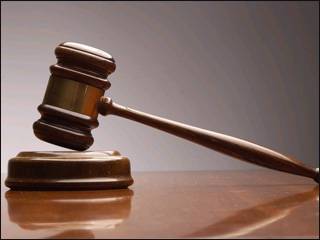RAWALPINDI – Anti-Terrorism Court (ATC) No 1 Judge Chaudhry Habib-ur-Rehman on Tuesday declared the statements of four Indian officials unlawful, which were recorded by a judicial commission in the Mumbai attacks case.“These were not acceptable in Pakistan and cannot be used as evidence against the seven men arrested in Pakistan in connection with Mumbai attacks,” the judge laid down the verdict, while accepting the objections raised by Zaki-ur-Rehman Lakhvi and other detained accused after the Indian authorities did not allow their lawyers to cross-examine the four prosecution witnesses in India.The judge maintained that the judicial commission should visit India again after obtaining the permission of cross-examination, if the prosecution wanted to use the statements of Indian witnesses as evidence against the seven accused.In April, the judicial commission visited Mumbai and recorded the statements of Chief Investigation Officer Mumbai Ramash Mahale, Rama Vijay Sawanth (the magistrate who recorded the confessional statement of Ajmal Kasab - the lone survivor of Mumbai attacks), Dr Shaliesh Mohiti and Dr Ganash Dhondiraj who conducted post-mortem of the 166 dead persons.The defence lawyers were refrained to cross examining the witnesses by Indian Special Public Prosecutor Ujwal Nikam, tasked to facilitate the Pakistani judicial commission.In an objection petition filed by defence lawyer Khawaja Haris, with the ATC No 1on April 28, said, “The judicial commission was sent by the court in Pakistan and under the national laws the accused has the right to cross-examine the witnesses.”In the eye of law, the proceedings and recording of the statements of the Indian prosecution witnesses without examination had no legal bearing in Pakistan ATC, the lawyers had argued in written.Khawaja Haris added that both Indian and Pakistani prosecutions had failed to submit any agreement between two nations disallowing the defence to question the witnesses.Meanwhile, a FIA special prosecutor argued before the court that there was no legal position of the statements of the Indian officials without cross-examination. He, however, cited an agreement between two governments deciding that no questions would be asked from the Indian officials.
Tuesday, April 16, 2024
Indian officials’ accounts have no standing: ATC

3:25 PM | April 16, 2024
1:17 PM | April 16, 2024
IHC dismisses Bushra Bibi's plea seeking her shifting to Adiala Jail from Bani Gala
4:25 PM | April 16, 2024
Punjab CM visits Tehsil Headquarter Hospital Murree
3:25 PM | April 16, 2024
High-level Saudi delegation in Islamabad to hold meetings with Pakistani leadership
2:07 PM | April 16, 2024
Saudi foreign minister meets PM Shehbaz Sharif
1:17 PM | April 16, 2024
Decision to retaliate against Iran attacks rests with Israel, says Pentagon
1:05 PM | April 16, 2024
Political Reconciliation
April 16, 2024
Pricing Pressures
April 16, 2024
Western Hypocrisy
April 16, 2024
Policing Reforms
April 15, 2024
Storm Safety
April 15, 2024
Democratic harmony
April 16, 2024
Digital dilemma
April 16, 2024
Classroom crisis
April 16, 2024
Bridging gaps
April 16, 2024
Suicide awareness
April 15, 2024
ePaper - Nawaiwaqt
Advertisement
Nawaiwaqt Group | Copyright © 2024





